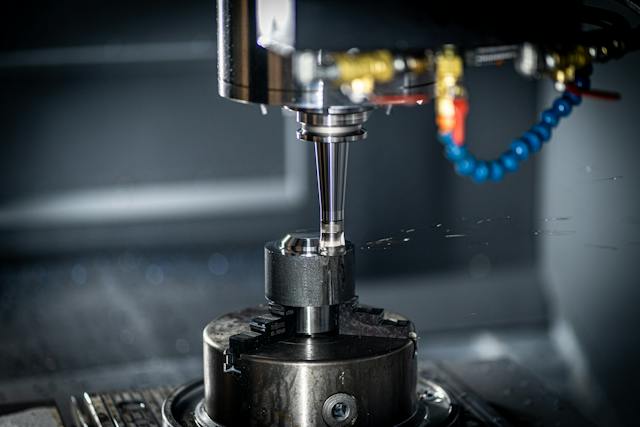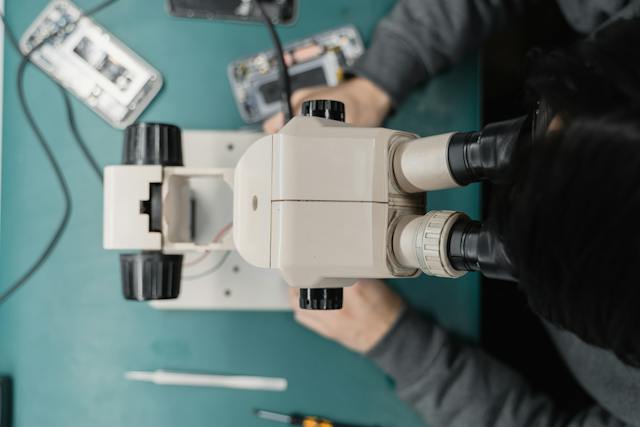Precision engineering stands as the backbone of technological advancements, permeating various industries with its undeniable significance. From the intricacies of manufacturing processes to the realms of healthcare, aerospace, electronics, and beyond, the question of what is the need for precision engineering echoes loudly.
This need is not merely incidental but rather intrinsic to the very fabric of innovation and progress. As we embark on a journey through the intricate world of precision engineering, the spotlight shines on its pivotal role in shaping the landscape of modern technology.
As we unravel the layers of precision engineering, its profound impact becomes increasingly apparent. The question of what is the need for precision engineering is not just an inquiry into a particular field but an exploration of a fundamental force driving innovation and progress in the technological landscape. It is the silent architect behind the scenes, shaping the products and technologies that define our modern existence.
What Is The Need For Precision Engineering?
1. Medical Advancements
In the expansive realm of medical advancements, the crucial role of precision engineering takes centre stage, influencing every facet of healthcare development.
What is the need for precision engineering in the medical field? It is the bedrock upon which the foundation of innovative medical devices is built. Precision instruments used in surgeries and advanced imaging technologies owe their precision and reliability to the meticulous craftsmanship of precision engineering.
The need for precision in medical equipment transcends mere technological advancement; it is a direct lifeline, intricately linked to the noble mission of saving lives and enhancing patient outcomes.

2. Aerospace Innovation
As we soar into the skies of aerospace innovation, the question of what is the need for precision engineering echoes through the jet streams. Precision engineering is not merely a contributing factor; it is the driving force propelling aerospace innovation to new heights.
The aerospace industry’s demand for components that defy extreme conditions finds its answer in precision engineering. From the robust design of aircraft engines to the intricate calibration of navigation systems, precision engineering becomes the custodian of safety, reliability, and efficiency in every aspect of aviation.
3. Electronics And Technology
In the dynamic landscape of electronics and technology, precision engineering emerges as the unsung hero, orchestrating the symphony of miniaturisation.
What is the need for precision engineering in the fast-paced world of technology? It is the driving force behind the relentless pursuit of smaller and more precise components. The gadgets that have become indispensable in our lives, from smartphones to computer chips, owe their efficiency and power to precision engineering.
It is not just a force; it is the guiding hand that shapes the relentless advancement of technology, ensuring that every component, no matter how small, is crafted with unparalleled precision.

So, what is the need for precision engineering across these diverse realms? It is the unifying thread that weaves through the fabric of progress, intricately linking precision engineering to the enhancement of human life and the continual evolution of the world around us.
In healthcare, aerospace, and technology, precision engineering emerges as the silent architect, ensuring accuracy, reliability, and efficiency in the technologies that define our existence.
4. Automotive Excellence
Within the automotive industry, the synergy between precision engineering and excellence is undeniable. What is the need for precision engineering in automobiles?
It goes beyond a mere desire for performance; it is the very foundation upon which the industry is built. From the meticulous manufacturing of engine components to the strategic design of safety features, precision is not just paramount—it is the heartbeat of automotive innovation.
The need for precision engineering is intricately tied to the pursuit of optimal performance and, more importantly, the safeguarding of the lives of drivers and passengers.

5. Energy Sector Applications
Venturing into the expansive landscape of the energy sector, the impact of precision engineering reverberates through the efficiency and sustainability of energy production.
What is the need for precision engineering in the energy sector? It is the linchpin that ensures the seamless integration of efficiency and sustainability. Precision engineering contributes significantly, from the inception of designs for renewable energy systems to the ongoing maintenance of traditional power plants.
The role of precision engineering is not confined to optimising energy production processes; it extends to reducing environmental impact and elevating overall efficiency, aligning energy production with eco-friendly practices.
Challenges And Solutions
While the need for precision engineering is indisputable, the industry faces challenges that necessitate innovative solutions. What is the need for precision engineering amid challenges?
It is the call to adapt and evolve continuously. Addressing material limitations and optimising manufacturing processes are not just hurdles; they are opportunities for growth and improvement. The industry, in its constant state of evolution, thrives on the commitment to overcome challenges through ingenuity and a relentless pursuit of precision.

In the automotive and energy sectors, the need for precision engineering is not a luxury but a fundamental requirement. It is the beacon guiding the automotive industry towards optimal performance and safety, while in the energy sector, it is the driving force behind sustainable and efficient energy production.
Challenges may arise, but precision engineering, with its innate commitment to excellence, navigates the evolution of industries, ensuring that every component, every system, is crafted with the utmost precision for a safer, more sustainable future.
Training And Skill Development
The significance of precision engineering is not confined to the realm of machinery but extends to the skilled professionals behind the scenes. What is the need for precision engineering in workforce development?
It is the bedrock upon which industry excellence is built. Skilled engineers and technicians are the linchpin in maintaining the exacting standards demanded by precision engineering across various sectors. The need for precision engineering expertise among professionals is not just a requirement but a mandate for achieving precision in every facet of industry operations.

Quality Control Measures
As we delve into the intricate world of precision engineering, the emphasis on maintaining high standards becomes paramount. What is the need for precision engineering in quality control?
It is the insistence on perfection from initial design to the final product. Precision engineering demands more than skill; it necessitates stringent quality control measures involving thorough testing and inspection. This unwavering commitment to quality ensures that precision-engineered products not only meet but often exceed customer expectations.
The need for precision engineering in quality control measures is not just a step; it is the very staircase leading to the zenith of customer satisfaction.
We Shape All Advancements
In conclusion, what is the need for precision engineering? Its need is multi-faceted, weaving through the fabric of various industries. Its influence extends beyond the mere mechanics of manufacturing; and actively shapes technological advancements, fosters economic growth, and champions environmental sustainability.
As we navigate the intricacies of precision in manufacturing and innovation, the impact of precision engineering on our daily lives cannot be overstated.
It is the silent architect, the driving force that ensures every component, every product, is crafted with unparalleled precision, enriching our lives with efficiency, reliability, and excellence.
Read More
The Best Aeronautical Prototype Manufacturing Factors To Consider.

